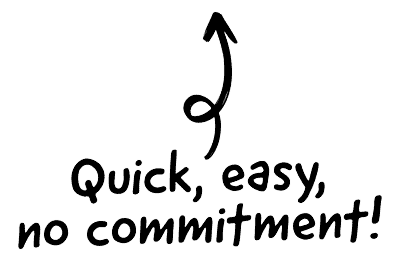Switching payroll providers can seem like a daunting task. But with the right information, it can be a smooth transition that leaves you feeling confident in your decision.

In this article, we will answer some of the most common questions business owners have about switching payroll providers. We will also provide tips on how to choose the best outsourced payroll solution for your business.
Why switch payroll providers?
There are a number of reasons you may want to switch payroll providers. Maybe you’re not happy with the level of customer service you’re receiving. Or perhaps you’re looking for a provider that can offer more features and options than your current one. Whatever the reason, it’s important to do your research before making any decisions.
 Cutting edge payroll software
Cutting edge payroll software
- Powerful and easy to use
- HMRC & RTI compliant
- Used by payroll pros
 The CRM platform to grow your business
The CRM platform to grow your business
- Great for entrepreneurs
- Powerful data analytics
- Manage sales and data
 Powerful web builder and advanced business tools
Powerful web builder and advanced business tools
- Great for startups
- Powerful web page builder
- E-commerce available
 Supercharged content planning
Supercharged content planning
- Great for marketing
- Better than lists or sheets
- Manage social media
 Create a new website in 10 minutes. Easy.
Create a new website in 10 minutes. Easy.
- Launch your website fast
- Powerful data intuitive
- No coding skills needed
When is the best time to switch payroll providers?
There is no definitive answer to this question. It depends on your specific situation and needs. However, it’s generally advisable to switch payroll providers during your company’s off-season. This will give you time to iron out any kinks in the transition process.
| A note on contractual obligations |
|---|
| Before you switch payroll providers, you need to check your current contract to see if there are any early termination fees. If so, you’ll need to factor this into your decision. You may have already committed to staying with your current payroll provider for a set period of months or years. |
Risks when changing to a new payroll company
As with any major change, there are always risks involved. When switching payroll providers, the biggest risk is that something will go wrong during the transition process. This could result in delayed or inaccurate payslips for your employees. To avoid this, it’s important to choose a reputable and experienced payroll provider.
Potential errors to watch out for include:
- Payslip errors
- Tax forms not processed correctly
- Error in employee information
- Incorrect deductions taken from payslips
- Late or missing payslips
How to avoid problems when swapping payroll providers
The key to a smooth transition is planning and communication. Here are a few tips to help you avoid problems when switching payroll providers:
| Consideration | Good to know… |
|---|---|
| 1. Give yourself plenty of time to research and compare providers | Before you switch, make sure that you have enough time to research different providers and choose the best one for your business. |
| 2. Make sure you understand your current contract and any early termination fees | Before you switch, make sure you understand the contract with your old payroll company and what will happen if you leave. |
| 3. Choose a reputable and experienced payroll provider | When you switch to a new payroll company, make sure it is good and experienced. This will help to avoid any problems during the transition. |
| 4. Communicate with your employees about the switch | Make sure to tell your employees what is happening when you switch payroll providers. This will help them understand what is going on and avoid any confusion. |
| 5. Make a detailed plan for the transition process | Make a plan for what will happen when you switch to a new payroll company. This will help everything go smoothly and avoid any problems. |
These are just a few of the most important things to keep in mind when switching payroll providers. By following these tips, you can ensure a smooth transition for your business.
What information will you need to provide to your new payroll provider when you switch?
When you switch payroll providers, you will need to provide your new provider with some basic information about your business. This includes your company’s name, address, and tax ID number. You will also need to provide information on your employees, such as their names, addresses, National Insurance numbers, and job titles.
How to choose the best outsourced payroll solution
In this section, we’ll provide you with tips on how to choose the best outsourced payroll solution for your business.
How to switch payroll provider
- Evaluate your needs
Before you begin researching payroll providers, take some time to evaluate your needs. What features and options do you need? What level of customer service do you require? How important is price to you? Once you have a better idea of what you’re looking for, you can start narrowing down your options.
If you’re not sure what you need, consider talking to a business consultant or your accountant. They may be able to help you identify your needs and create a list of must-haves. - Consider how these needs might change in the future
In addition, take some time to think about your company’s future needs. Are you planning on growing your business? If so, you’ll want to choose a payroll provider that can accommodate future growth.
- Think about your budget
Consider your budget. How much are you willing to spend on a payroll solution? Knowing your budget upfront will help you narrow down your options.
- Make a short list of potential suppliers
Once you’ve evaluated your needs, you’re ready to start researching payroll providers.
Here are a few things to keep in mind as you begin your search:
The size of your company: Are you a small business or a large corporation? Not all payroll providers are created equal. Some specialise in providing solutions for small businesses, while others cater to larger organizations. Choose a provider that’s a good fit for the size of your company.
Reputation: One of the most important things to look for in a payroll provider is a good reputation. Read online reviews and talk to other businesses in your industry to get an idea of which providers are the best.
Experience: Payroll can be complex, so you’ll want to choose a provider with significant experience. Look for a provider that’s been in business for several years and has a track record of success.
The features and options you need: What features are you looking for in a payroll solution? Do you need time tracking capabilities? Online access for employees? Direct deposit? Make a list of the features you need and use it to guide your search.
The level of customer service you require: How important is customer service to you? Some payroll providers offer 24/seven support, while others have more limited hours. decide what level of customer service you need and choose a provider that offers the right level of support. - Request proposals from potential suppliers
Once you’ve created a short list of potential payroll providers, it’s time to request proposals.
When requesting proposals, be sure to include your list of must-haves. This will help the providers understand your needs and give you the information you need to make an informed decision.
When evaluating proposals, there are a few things you should keep in mind, such as:
Price: Obviously, price is an important consideration. But it’s not the only thin
g you should look at. Be sure to compare the features and options offered by each provider.
The contract: Pay close attention to the contract terms before you sign anything. Make sure you understand the length of the contract, the cancellation policy, and any other important details.
The provider’s reputation: As we mentioned earlier, reputation is important. Be sure to do your research and read online reviews before you make a final decision.
Once you’ve evaluated all of the proposals, you’re ready to choose a payroll provider.
Closing words
Switching payroll providers can be a big decision, but it’s one that can have a big impact on your business. In this article, we’ve outlined the steps you need to take to make sure the process goes as smoothly as possible. We hope this guide has been helpful and wish you luck in finding the perfect payroll provider for your company.
Frequently asked questions
The length of time it takes to switch payroll providers varies depending on the size of your company and the complexity of your payroll. However, most switches can be completed within a few weeks.
Yes, as long as you choose a reputable and experienced payroll provider, your employees will be paid on time.
The cost of switching payroll providers varies depending on the size of your company and the complexity of your payroll. However, most switches can be completed for a few hundred pounds.
Yes, you can switch payroll providers at any time. However, it’s generally advisable to do so during your company’s off-season.
There are a few things you should consider, such as the size of your company, your budget, and the features and options you need. You should also make sure to choose a reputable and experienced provider.
Yes, there are always risks involved in any major change. The biggest risk is that something will go wrong during the transition process. This could result in delayed or inaccurate paychecks for your employees. To avoid this, it’s important to choose a reputable and experienced payroll provider.
Yes, you may need to sign a new contract. You should check the requirements of your new payroll provider when signing up.

